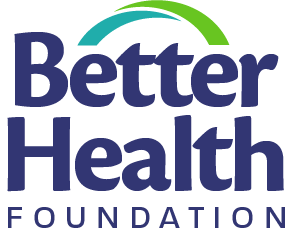HOW WE GIVE
Types of Grants
Capacity Building and Service Support
Capacity Building and Service Support grants are intended to strengthen the operations and programs of nonprofits and nonprofit partnerships in the region to increase their service reach and their ability to generate significant community health results.
-
Examples of capacity building include (but are not limited to) requests to improve management skills, to develop true business and financial plans that will guide sustainability, or to expand fundraising strategies or staffing. Focus is on the quality, strength and sustainability of the internal operations of the organization or partnership that are necessary to achieve growth and stability.
To support service expansion or quality, grant applications might address the addition of complementary services, service access by underserved communities, or service quality improvement. The focus is on ensuring that high quality community health services are available to and accessible by everyone in all types of communities in the region.
-
Capacity Building and Service Support grants will be considered in the fall cycle. The cycle opens in July with Letters of Inquiry (LOI). Grants are awarded before the end of the calendar year.
-
Proposals ranging from $10,000 to $75,000 will be considered. Total funding awarded for this opportunity in 2025 was $991,850.
Innovation
Innovation grants are intended to bring new players, new methods, or new partnerships to community health priorities to improve community health results. The focus is on identifying and trying new ideas and new approaches, either created anew in the region or replicated in the region from elsewhere in the nation where success has been experienced.
-
Examples might include a new pathway for reaching or impacting a community not usually engaged in health prevention (e.g., mosques to engage Muslim women in diabetes prevention), an innovative technological approach to a problem (mood focused smartphone apps to prevent suicide), an initiative to test an approach to a community health problem whose origins are poorly understood or appreciated (e.g., adjusting health approaches for culture).
The emphasis is on creativity and ensuring that there is true community partnership in concepts, actions, and results.
-
Innovation grants will be considered in the spring cycle. The cycle will open with Letters of Inquiry in January. Grants will be awarded in late May.
-
Proposals will be considered in the $100,000 to $200,000 range. Total funding awarded in 2025 was $1,024,880. The grants budget is market sensitive.
Solutions at Scale
Solutions at Scale grants are intended to enable initiatives with clear evidence of effectiveness to be adopted throughout the region by a significant number of organizations serving a significant number of communities. The Foundation will be deeply involved in identifying and structuring these issues as a true substantive partner in the proposal process. The priority will be to grow solutions that have proven evidence of success, either in the region or nationally.
-
An example of a Solutions at Scale grant might be to deploy across the region to every veteran a nationally recognized suicide prevention program. The focus is on solutions that affect many people covering a large geographic area.
-
Solutions at Scale grants will be awarded in a summer cycle every two years beginning in 2025. The invitation to submit a Letter of Inquiry will take place in February of the granting year, full proposals will be invited in March, and grants will be made in August. Note, the Foundation will extend invitations to select organizations to participate in this process.
-
The grant range is $250,000 to $350,000.
Discretionary
Discretionary grants are intended to help nonprofit organizations respond to organizational emergencies or unusual or unforeseen expenses that create a barrier for service provision.
-
Examples might include a response to natural or man-made disasters, or inaccessible or destroyed technology or equipment. The emergency must be a barrier to providing services or carrying out basic operations. Awards will be made consistent with the Foundation’s mission and guidelines.
-
Discretionary grant requests will be considered throughout the year. Applications are made available to qualified nonprofit organizations by contacting the Foundation office.
-
A maximum of $8,000 will be awarded for any single request; grants larger than $5,000 will be an exception.
Grant Review Process
The Better Health Foundation (BHF) values are transparency, collaboration with the nonprofit community, open learning with those receiving our grants, and equity. Our commitment to our values is demonstrated in the way grant recipients are selected.
